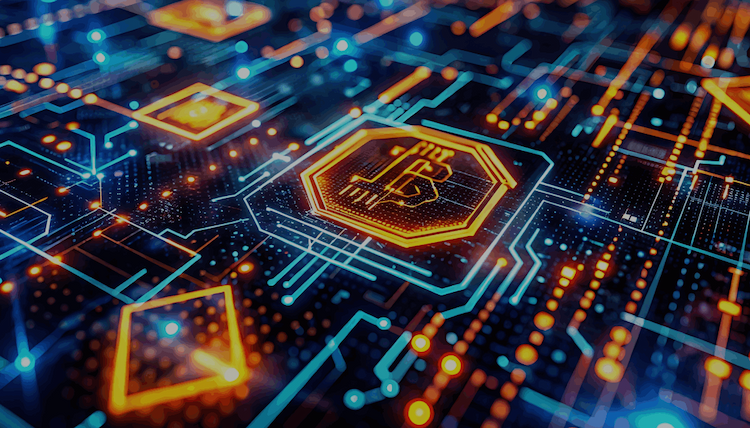
Artificial intelligence (AI) is significantly transforming decentralized finance (DeFi) by enhancing efficiency, security, and user engagement. For experienced blockchain users and financial professionals, understanding AI’s diverse impact on DeFi is crucial for leveraging opportunities in this rapidly evolving sector. This discussion explores AI’s influence on DeFi, including predictive analytics, security measures, liquidity management, and regulatory compliance.
Advanced Predictive Analytics and Automated Trading
AI’s primary contribution to DeFi lies in advanced predictive analytics. Machine learning models process extensive historical and real-time data—such as price trends, trading volumes, and macroeconomic indicators—to more accurately forecast market movements. These insights enable DeFi traders to create automated trading strategies that adapt to market volatility and optimize yield farming approaches.
AI-driven algorithms can adjust positions dynamically, maximizing returns and minimizing risks through methods like reinforcement learning. This capability offers DeFi investors a competitive advantage, facilitating the development of sophisticated trading bots and automated strategies that surpass human performance.
A notable advancement is AI’s application in identifying arbitrage opportunities. By detecting price discrepancies across various decentralized exchanges (DEXs), AI-powered bots can execute profitable trades within milliseconds, promoting more efficient markets and potentially higher returns for users.

Strengthening Security and Reducing Fraud
The rapid expansion of DeFi introduces challenges, particularly in security and risk management. Smart contracts, fundamental to DeFi, are vulnerable to bugs and exploits. AI-driven auditing tools and anomaly detection systems continuously monitor code and transaction patterns for irregularities, enabling developers to address potential vulnerabilities proactively.
Additionally, machine learning techniques track suspicious activities and identify fraudulent behavior, reducing the likelihood of hacks and scams. This enhanced security fosters greater trust among users and institutions. AI can also improve decentralized autonomous organization (DAO) governance by detecting voting patterns and decision-making behaviors indicative of collusion or manipulation.
Furthermore, AI can be utilized in risk modeling to evaluate the probability of specific smart contract failures or exploits. These models assist developers and investors in assessing protocol safety and informing decision-making and portfolio management strategies.
Revoluzionized Liquidity Management
Liquidity is essential for any DeFi platform. AI plays a crucial role in managing liquidity pools and automated market makers (AMMs). AI-driven algorithms can predict changes in liquidity demand and adjust fees, rebalance pools, and optimize capital allocation accordingly.
For example, AI models can analyze various market conditions to recommend efficient liquidity provision strategies, minimizing slippage and impermanent loss for liquidity providers while maintaining competitive spreads for traders. AI-powered tools contribute to more efficient and resilient liquidity management systems.
These tools can also adapt to sudden market events, such as new token listings or macroeconomic shifts, by proactively redistributing assets to ensure stability. This adaptability benefits liquidity providers and helps DeFi protocols maintain user confidence during periods of high volatility.
Boosted User Experience
DeFi platforms often face challenges with complex user interfaces and steep learning curves, hindering mainstream adoption. AI solutions, particularly those utilizing natural language processing (NLP), are addressing this issue. Smart assistants and chatbots guide users through complex DeFi processes, answer questions, automate tasks, and provide personalized recommendations based on individual usage patterns.
Moreover, AI can customize content and suggest investment strategies aligned with user goals and risk tolerance, creating a more intuitive and engaging experience. This personalized approach improves user retention and democratizes access to advanced financial tools.
Another significant application is AI in portfolio management. Advanced algorithms can analyze an individual’s investment patterns and recommend rebalancing strategies to optimize returns. By considering factors such as risk tolerance, market conditions, and user preferences, AI-powered portfolio managers offer customization that manual methods may not achieve.
Simplified Regulatory Compliance
The regulatory environment surrounding DeFi is rapidly evolving. AI can be pivotal in ensuring DeFi projects comply with international financial regulations. AI systems can monitor transactions for anti-money laundering (AML) and counter-terrorism financing (CTF) purposes through advanced data analytics, identifying high-risk activities in real-time.
AI-driven compliance tools also streamline reporting processes, enabling projects to meet regulatory requirements with minimal friction. This capability is crucial for projects integrating with traditional financial systems or attracting institutional investments.
Beyond AML and CTF, AI can help maintain adherence to various global regulatory frameworks by automating the creation of audit trails and compliance reports. This can significantly reduce the administrative burden for DeFi projects and build trust among potential partners and investors.
Turning Data into Decision
AI excels at aggregating data from diverse sources and presenting actionable insights. DeFi combines on-chain data, social sentiment, macroeconomic indicators, and other relevant information to inform investment and governance decisions.
AI-powered dashboards can provide a comprehensive market view, enabling participants to make informed decisions more rapidly than manual analysis allows. By leveraging AI, DAO participants can better understand community sentiment, evaluate potential proposals, and make data-driven decisions that align with the organization’s long-term vision.
Additionally, these insights can be used to refine tokenomics models, ensuring sustainable incentive structures that benefit all stakeholders.

Challenges
While AI offers numerous benefits to the DeFi ecosystem, it also presents challenges. Algorithmic transparency is a significant issue, as many advanced models are often viewed as “black boxes,” making it difficult to explain decision-making processes. Additionally, using AI raises concerns about data privacy and potential bias, which must be managed through robust governance frameworks.
Ethical considerations also arise, especially regarding the potential for AI to amplify inequalities within the ecosystem. Developers and platform operators must strive to build inclusive AI models and mitigate biases in their training data.
Moreover, reliance on AI necessitates vigilance to ensure models remain effective in rapidly changing environments. The performance of AI systems can degrade over time if not updated with current data and refined to handle new market behaviors.
Conclusion
AI is fundamentally reshaping the DeFi landscape, enhancing efficiency, security, and user experience. For advanced users, understanding how AI-powered tools operate and influence various DeFi protocols can unlock new



